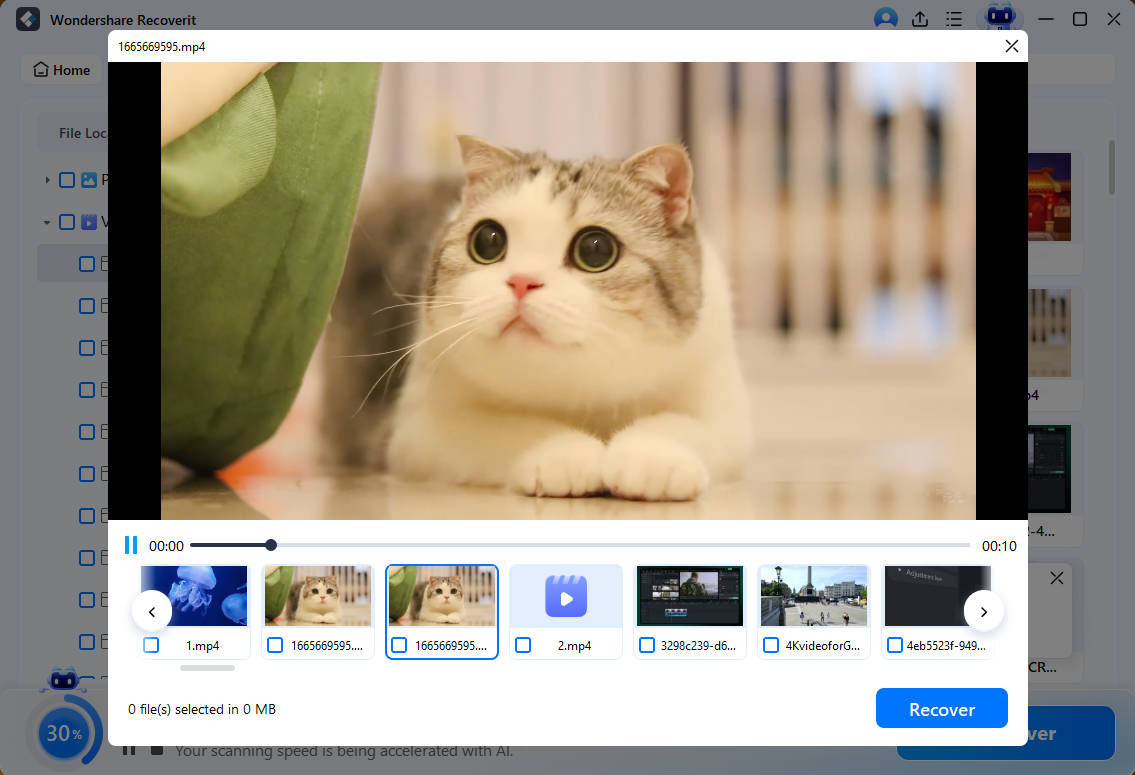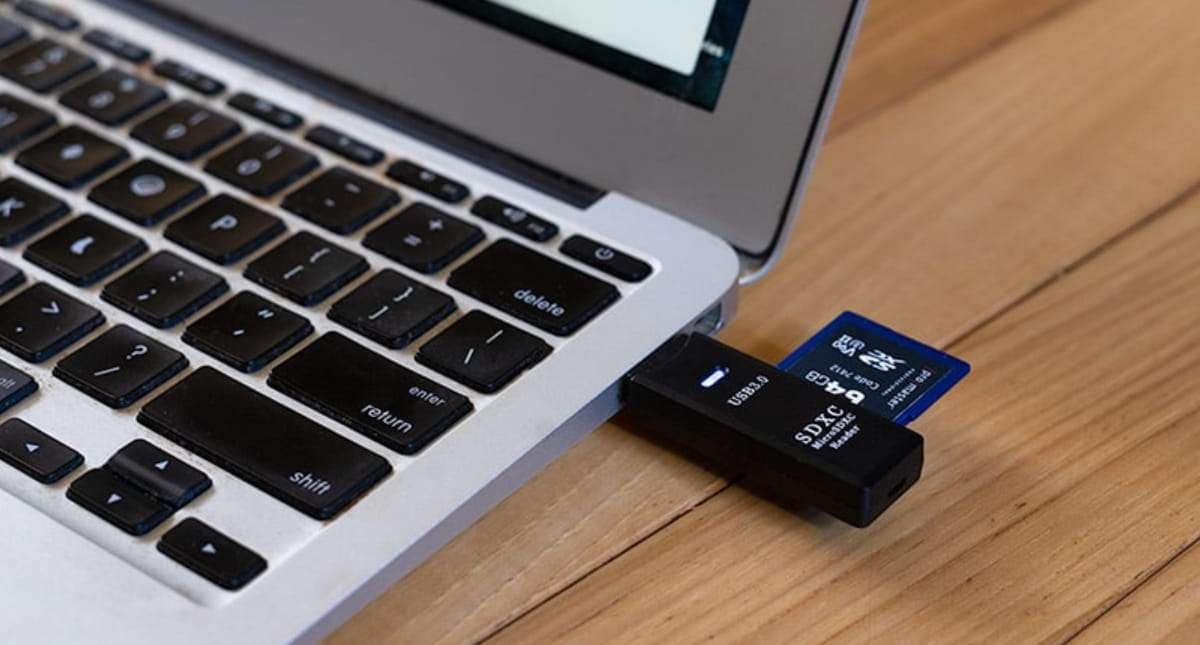What Does It Mean to Format an Sd Card
“I am a switch user, but its size is so small for my games. So, I was thinking of expanding the storage space with the SD card. I already have one, can anyone guide me on how to format it with the correct file system.”
How do I configure my SD card for the Switch?
When you are looking for a secure digital device for your switch, you are sometimes not sure how to format it and do you need to format a new sd card? Well, this article would be of great help where you will learn all about selecting the right file system, what does formatting an SD card do and all.
Dig into it to get in-depth knowledge and implement it without facing any trouble.
Part 1. What Does It Mean to Format an SD Card
When someone says format SD card, this simply means delete all the data on it permanently. The moment you do it, a new file system is allocated to the secure digital device. This makes it reusable for saving new records again.
Let us see in detail what does formatting an SD card does.
3 Purposes of Formatting an SD Card
When someone says "format" you get an idea the whole records on this secure digital media is going to delete. Does formatting do only this much? Think over! It does much more to make the storage device reusable. Most of you might not know this. Read it here for what purposes you can format an SD card.
- Change the File system
Different devices work with diverse file systems. So, to make your secure digital media compatible to work on a particular device, you need to change the file system. For this formatting it in the required file system becomes necessary.
- Fix corrupted SD card
If your data drive gets infected with some virus, or while trying to access it, you get a message that the disk is corrupted or unreadable, then formatting it resolves the issue. It is one of the best ways to make your storage drive ready for reuse.
- Erase data
At times you want to create space on your storage media, then you can opt for erasing files by formatting it. It will give you more space by deleting all the existing information that is of no use for you now.
So, these are some of the vital purposes for which you opt for formatting your secure digital memory stick. Now as you know, what does formatting an SD card do? These are the various reasons for deleting the data permanently. Now let us see how to do it for different purposes.
Part 2. How to Format SD Card for New File System
To make your secure digital drive ready for use with a new file system, you need to format it. There are some ways to do it. You can do it with disk management, windows explorer, and even with diskpart. Let us see how to do it.
Solution 1: Disk Management
You can use this in-built Windows tool to create a new file system. This utility allows users to manage and view the installed disk drives on your system. Now see here how to change the file system with it.
Step 1: Type diskmgmt.msc in windows run box (Windows +R) and press enter. It will open the disk management
Step 2: Now, look for your secure digital drive and right-click on it to reach the "format" option.

Step 3: Now select the preferred file system and then click on OK

Step 4: Click OK on the warning message that reads formatting will erase everything.

This completes the change of the file system. You can use it on a compatible device.
Solution 2: Windows Explorer
It is a file manager application and is a part of the Windows operating system. You can use it to change the memory stick's file system. Proceed in the following way:
Step 1: Right-click on the secure digital drive to reach the "format" option.
Step 2: Now select the file system and click on "Start."

Step 3: Complete the process by clicking on "OK."

This completes the change of your file system.
Solution 3: DiskPart
The command-line utility DiskPart is also used for changing the files system. You need to type the commands to complete the process.
Step 1: Open Run box with Windows + R button and type diskpart. This opens it.
Step 2: Now type the following commands
list disk
select disk * (here * is the disk number)
list par
select par * (* is partition number)
format fs=***** (***** is the file format like NTFS, FAT32)
exit

This completes the file change.
While following all these solutions, ensure that the physical lock on the digital card's side is not in the locked position. If it is locked, any changes to the data drive won't be possible.
Tips
While formatting, if you realize that some of your important files are deleted, then these tips while guide you with data recovery.
Tip 1. Stop using it immediately
While erasing files when you realize that you have lost some of your valuable files, stop using it to avoid overwriting. All is not lost, data is still recoverable, till the time you do not overwrite it with the new data.
Tip 2. Back up Data
Take a backup of your files to avoid any data loss. Regular backups enable you to restore any file that you feel is deleted accidentally or unintentionally.
Tip 3. Recoverit Data Recovery Software
This is one of the best software that helps you recover data lost under any scenario. The software comes with the highest data recovery rate that can restore data of any format and size. Just download and install Recoverit and follow these three easy steps:
Step 1: Connect and select the SD card
Connect your drive to the system on which you have installed the software. Now select the storage device and click on "Start."

Step 2: Scan the select the device
When you click on "start," it will begin the scan to look for the deleted files. While scanning, if you find your target files, you can pause or stop the scan anytime in-between.

Step 3: Preview the recovered files
Once the scan completes, the software allows you to preview all the recovered files. After previewing and confirming, click on "recover" and select the location where you want to store files.

With this step your data recovery completes.
Part 3. How to Format and Repair Corrupted SD Card
When you fail to open some of your saved files or you get the message corrupted drive, you need to repair it to make it reusable. Try the following methods to fix it.
Solution 1: Use Command Prompt
You can use the command prompt to run chkdsk command for fixing the error.
Step 1: Connect the storage drive to the computer and go the "This PC/My Computer."
Step 2: Note the drive letter. You can see it in the section "devices and drives."
Step 3: Open the command prompt and then type the command chkdsk *: /f (* is the drive letter). The command will scan the drive to check and fix any issues.

Solution 2: Windows Troubleshooter
This is the Windows inbuilt feature that looks for the problems and fixes them.
Step 1: Connect the memory stick to the system and go to the control panel.
Step 2: Open "Update and Security'" and reach "Troubleshooting."
Step 3: Click on "hardware and devices" and then on "run the troubleshooter."

Step 4: Once the process finishes, restart the system. The issue might be fixed.
Solution 3: Error Checking Feature
The in-built error checking feature of the system also scans the errors and fixes them.
Step 1: Connect the drive with the system and open windows explorer by pressing Windows + E
Step 2: Right-click on the connected digital drive and click on properties.
Step 3: Go to the option "tools" and then click on "check."
Step 4: Once the scan completes, you can fix the found errors easily by following the simple instructions that display on the computer screen.

Solution 4: Format the Corrupted Data Card
If none works, then you can proceed with formatting. It will fix all the corruption-related issues.
Step 1: Connect the memory stick to the system and open Windows Explorer by double-clicking on the This PC/My Computer icon.
Step 2: Find your connected memory drive under the section "Devices and drives" and then click on "format."

Step 3: Select the file system in which you want to format the data drive and click on "Start." When prompted, press OK.
This will erase all the data and make a secure digital device reusable. As this deletes all the data, you can perform recovery with the Recoverit data recovery software. We have already discussed its complete steps above.
All the above methods help you in repairing the corrupt data drive to make it reusable. Follow the step-by-step instructions to avoid facing any interruptions or difficulties in the process.
Part 4. How to Format and Erase SD Card Data
Here are the solutions that will guide you through formatting and erasing data easily.
Solution 1: Disk Management
Step 1: Connect your memory stick with the system and right-click on the My Computer or This PC option.
Step 2: Click on Manage and then on "Disk Management."
Step 3: Find your storage media and click on "Format."

Step 4: Set the parameters – volume, file system, and allocation size. Tap on OK to erase all the data.
Solution 2: DiskPart
Step 1: Type diskpart in the Windows run box. When the window opens up, then type list disk. It will list all the disks of your system.
Step 2: Now type select disk*. Here * represents the disk that you want to erase.
Step 3: Proceed by typing clean all. It will remove all the data that is there on the SD card. This might take some time, so do not interrupt the process.

Note: In the DiskPart commands if you type "clean" in place of "clean all" it will not erase the data.
Clean: If you clean the data, it can be recoverable with the data recovery software. It only marks the data as deleted but is not gone from the disk completely.
Clean All: When you type clean all it securely erases the complete data making it unrecoverable.
Solution 3: Format Directly
Step 1: Connect the memory stick with the system and locate it in the My Computer/This Pc section.
Step 2: Right-click on your drive and click on "format."

Step 3: Click on "Start." It will begin the formatting and finish it within minutes.
Closing Words
So, you must have got the answer to the question: what does formatting an SD card mean? Formatting is required for many reasons. We have discussed various purposes for which you need to erase data and the different methods to erase it. These all answers what does it mean to format an SD card? While deleting the data, if you accidentally lose some of your required data, you can recover it easily with the Recoverit data recovery software.
We hope you will now be able to format the SD card easily!
SD Card Troubleshooting
- Recover Data from SD Card
- Card Repair Solutions


















 ChatGPT
ChatGPT
 Perplexity
Perplexity
 Google AI Mode
Google AI Mode
 Grok
Grok























Eleanor Reed
staff Editor